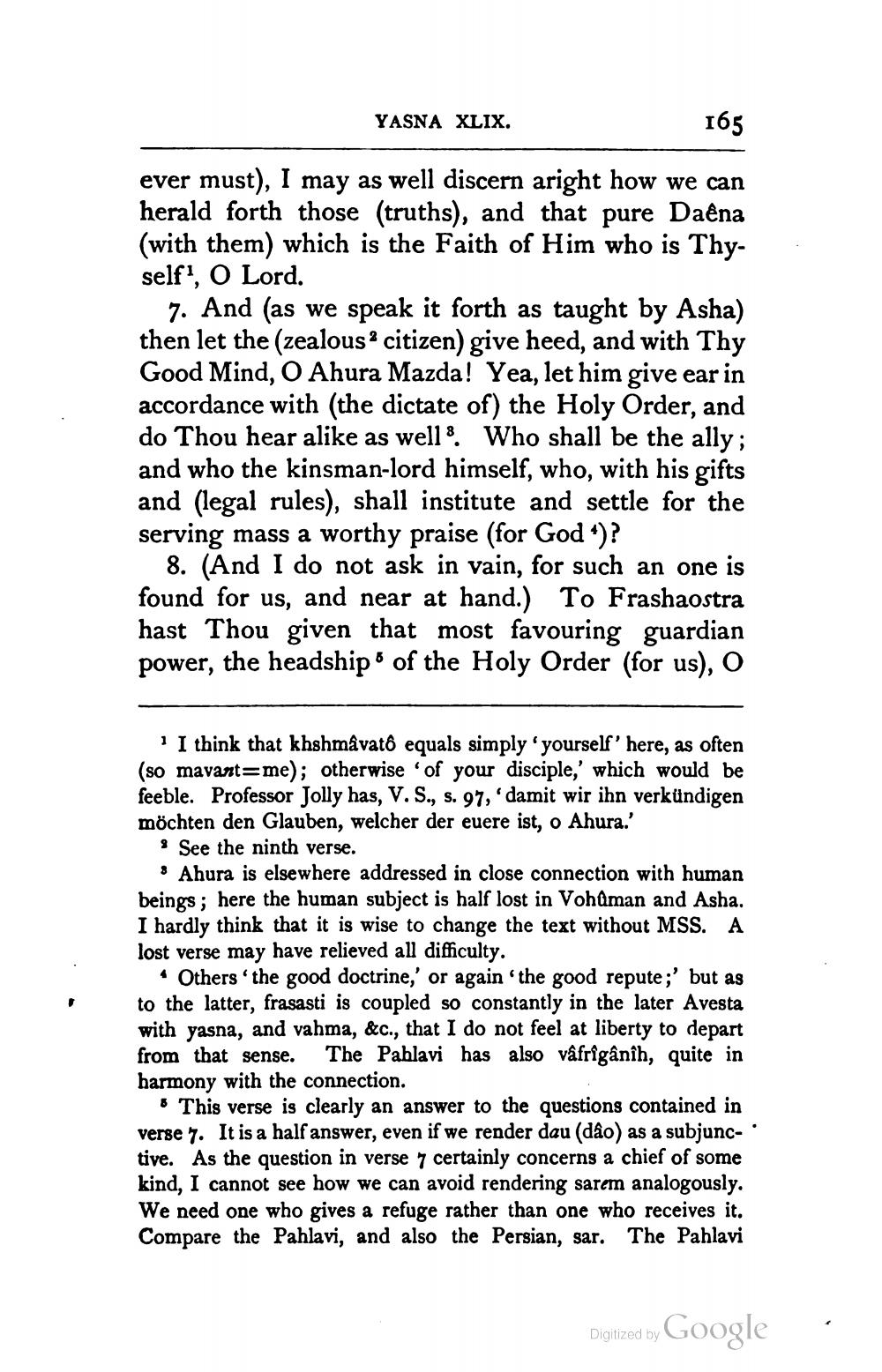________________
YASNA XLIX.
165
ever must), I may as well discern aright how we can herald forth those (truths), and that pure Daena (with them) which is the Faith of Him who is Thyself', O Lord.
7. And (as we speak it forth as taught by Asha) then let the (zealouso citizen) give heed, and with Thy Good Mind, O Ahura Mazda! Yea, let him give ear in accordance with (the dictate of) the Holy Order, and do Thou hear alike as well. Who shall be the ally; and who the kinsman-lord himself, who, with his gifts and (legal rules), shall institute and settle for the serving mass a worthy praise (for God“)?
8. (And I do not ask in vain, for such an one is found for us, and near at hand.) To Frashaostra hast Thou given that most favouring guardian power, the headship of the Holy Order (for us), O
"I think that khshmâvatô equals simply yourself' here, as often (so mavant=me); otherwise of your disciple,' which would be feeble. Professor Jolly has, V.S., s. 97, damit wir ihn verkündigen möchten den Glauben, welcher der euere ist, o Ahura.'
. See the ninth verse.
. Ahura is elsewhere addressed in close connection with human beings; here the human subject is half lost in Vohûman and Asha. I hardly think that it is wise to change the text without MSS. A lost verse may have relieved all difficulty.
• Others the good doctrine,' or again the good repute;' but as to the latter, frasasti is coupled so constantly in the later Avesta with yasna, and vahma, &c., that I do not feel at liberty to depart from that sense. The Pahlavi has also vâfrîgânîh, quite in harmony with the connection.
o This verse is clearly an answer to the questions contained in verse 7. It is a half answer, even if we render dau (dão) as a subjunctive. As the question in verse y certainly concerns a chief of some kind, I cannot see how we can avoid rendering sarem analogously. We need one who gives a refuge rather than one who receives it. Compare the Pahlavi, and also the Persian, sar. The Pahlavi
Digitized by Google
Digitized by
.




